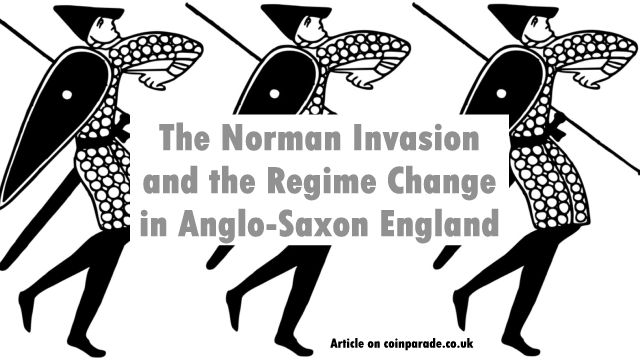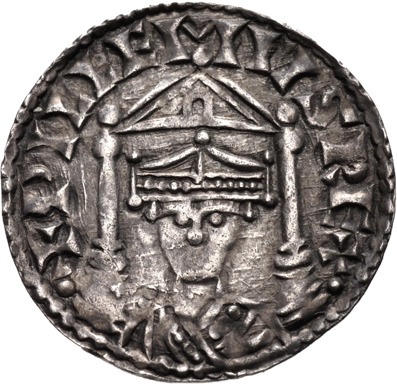
A summary of the actions of William the Conqueror leading up to the Norman Invasion and the Battle of Hastings in 1066. Had his adversary Harold really promised him the throne of England?
The Norman Invasion – Regime Change in Anglo Saxon England
As any English history student will tell you, the last time that England was successfully invaded was in 1066 when, following the defeat of King Harold at the Battle of Hastings, William the Norman became King of England and the Norman Conquest was underway.
However, the build up to the Battle of Hastings was has begun several years earlier, and William’s justification for an invasion that would lead to regime change in England has been debated over ever since.
England in 1066 was the wealthiest, best governed, and most stable country in Europe. The Normans held its throne in great esteem, simply because of its great age. In 1013 King Edward (who would later become Edward the Confessor) was driven into exile in Normandy by invading Danish armies.
Here he was under the protection of his uncle Duke Richard, his cousin, Duke Robert, and his nephew, the young William.
Crucially, as far as English history is concerned, when Edward became King of England in 1042 he, at some stage in 1051, so the Normans later claimed, promised his nephew William that he would succeed him as King of England, following Edward’s death.
Edward was childless, and he devoted many of his latter years to the building of a great Abbey to the West of the City of London, which we now know as Westminster Abbey.
In 1064 Harold Godwinson, one of Edwards trusted noblemen, set sail on a trip to France. A lot of mystery surrounds this trip, and the reason for it has never been fully ascertained with any degree of certainty. The Normans maintained that Harold was sent by Edward to reiterate, in other confesses promise, apparently made in 1051, to make William, his successor. What is certain is that Harold was sent on some mission by King Edward and his ultimate destination of peers to have been Flanders (modern Belgium) where Edward had a few relatives.
Whatever the reason for the voyage, Harold was blown off course by a storm, and his ship ran aground at Ponthieu in north eastern France, a small independent enclave, whose ruler owed fealty to William of Normandy. Harold was handed over to William and effectively became his prisoner.
However, it seems that William and Harold got on extremely well, and William went so far as to treat Harold as his honoured guest.
There have been claims that Harold promised to marry one of William’s daughters, and it has even been suggested that William would retire to bed early and leave his wife Matilda, alone with Harold, in order that she might use her womanly charms to win Harold over to the Norman cause.

What we don’t know is just how Harold really felt. It is possible, he did simply pay lip service to William, all too aware that he was effectively William’s prisoner. It is of course also possible that Harold was genuinely charmed by his Norman host.
Either way Harold accompanied William on a campaign in Brittany, and when a month later, they returned to Bayeux, William suggested that Harold swear an oath of the fealty to him. This oath would be crucial to William’s later claim to the throne of England, and historians are still divided over whether or not it was actually made and, more importantly, what exactly Harold swore to.
Oaths were taken deadly serious in 1066 and the later Norman propagandists maintained that the oath was made over a chest full of holy relics, which William had cunningly covered with a cloth to disguise from Harold the fact that he was undertaking a holy oath.
Debate still rages over what it was that Harold actually promised his Norman host. According to the Anglo-Saxons, Harold merely swore to be William’s man in Normandy, but made no commitment with regards to the succession to the English throne. The Normans, however, maintained that Harold vowed to advance and to defend William’s right to the throne of England.
Whichever, Harold returned to England, and it would be another two years before, in 1066, following the death of Edward the Confessor and Harold’s being crowned King of England, William used the supposed oath to justify an invasion of England, which would result in the Norman Conquest and, effectively, change the course of English history.
Richard Jones is an internationally published travel writer whose books include Myths and Legends of Britain and Ireland and Haunted Britain and Ireland. He regularly appears on both the History and Discovery Channels and conducts regular London Walks as well as tours of historic Britain and Ireland. Extracts from this article may be used but full acknowledgement must be given to Richard Jones as the originating author and all usage must include a link to his website at http://www.jack-the-ripper-tour.com.








